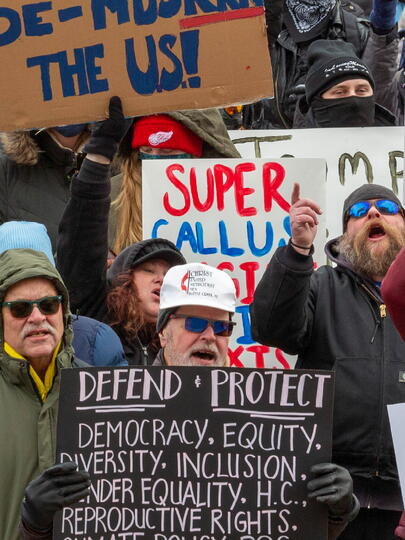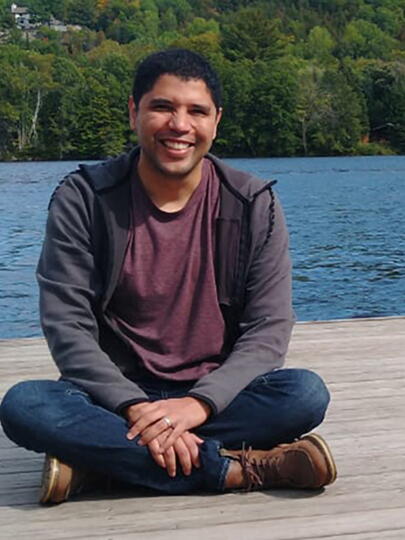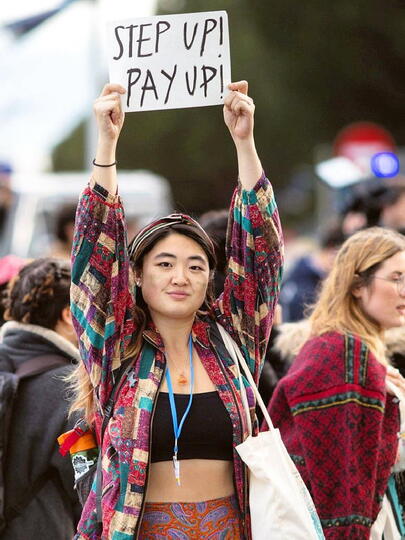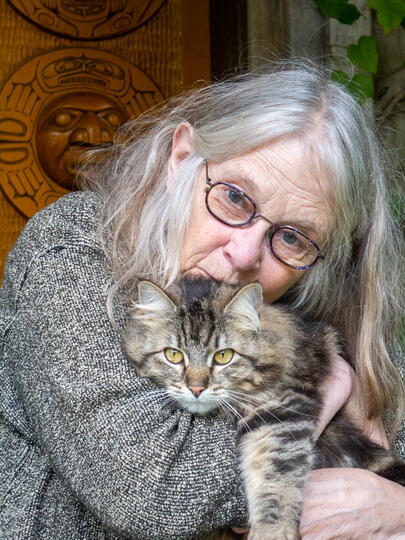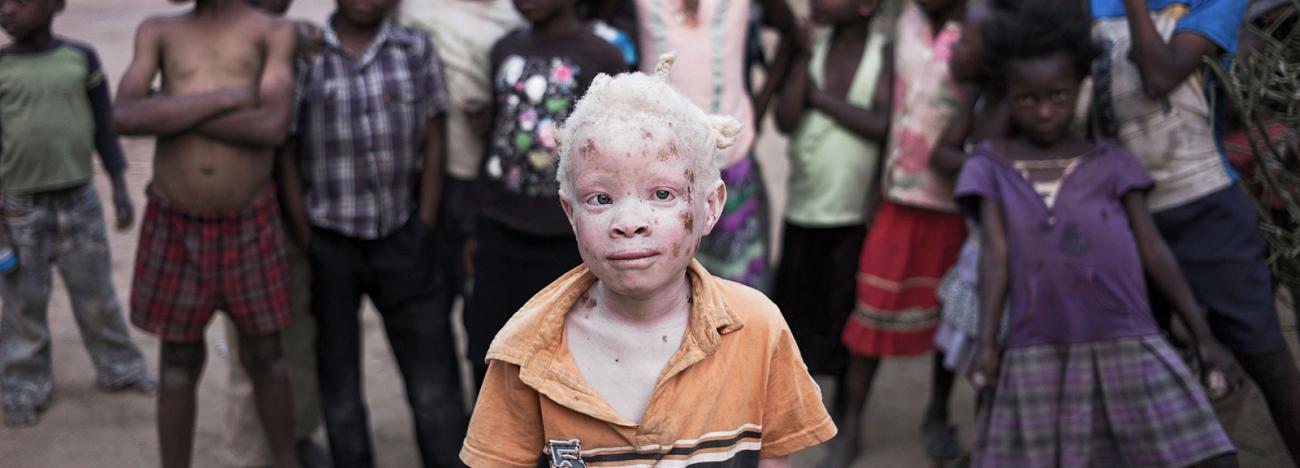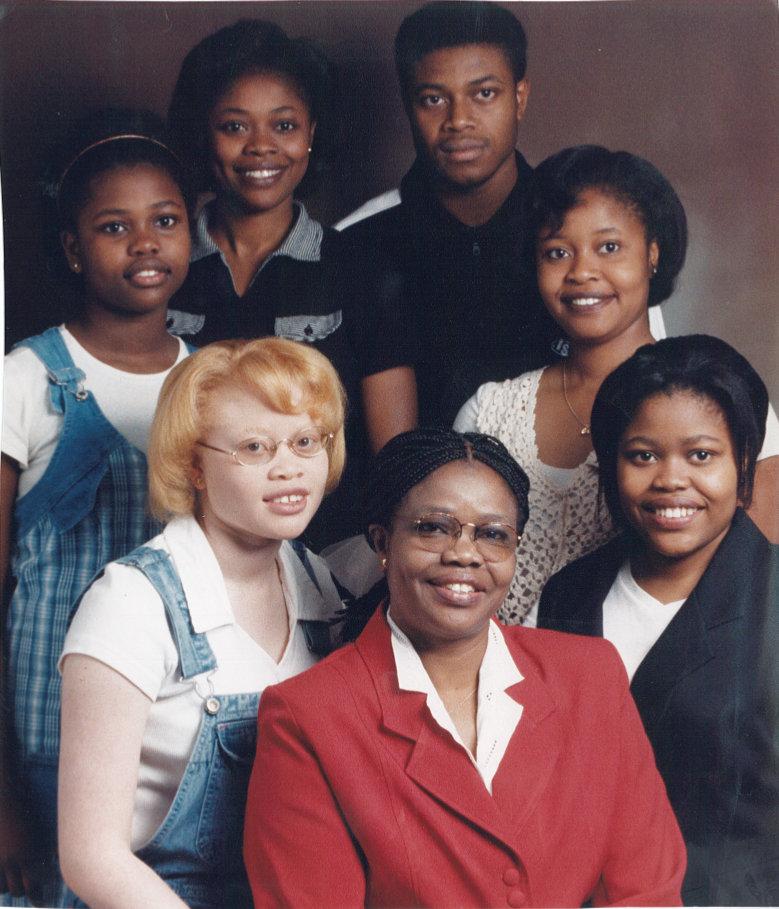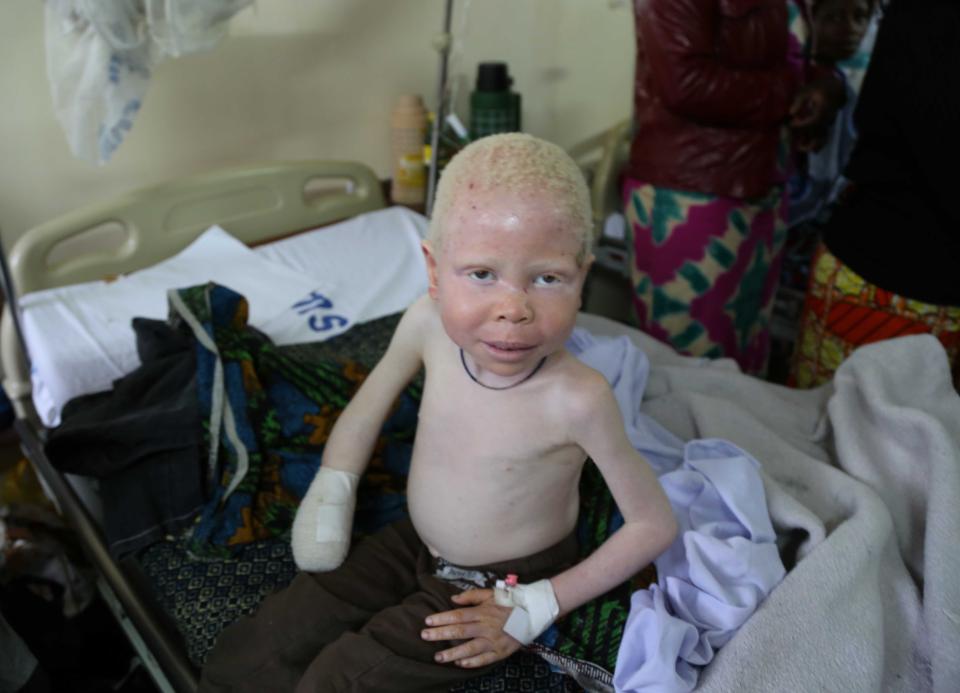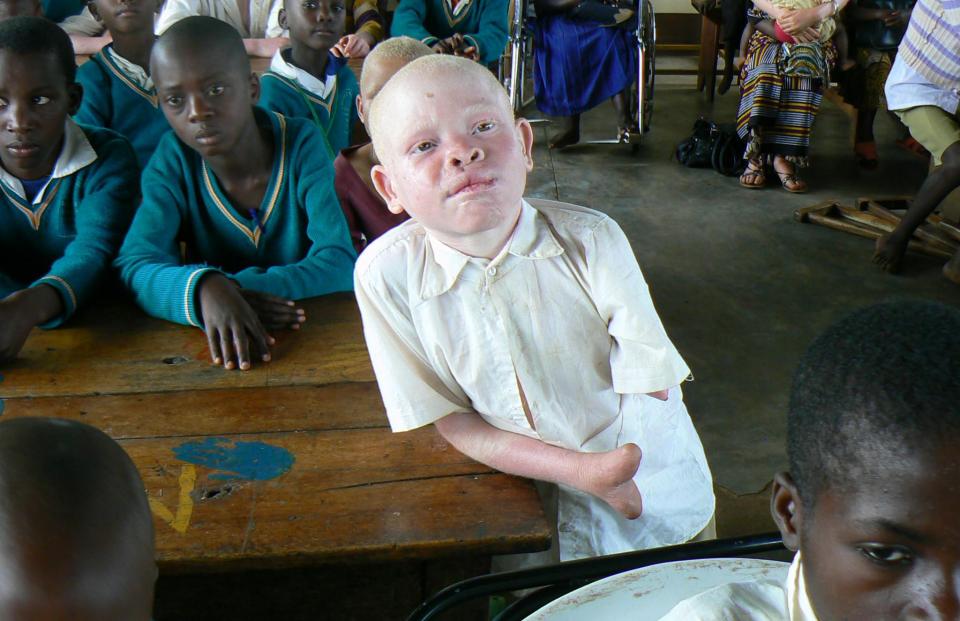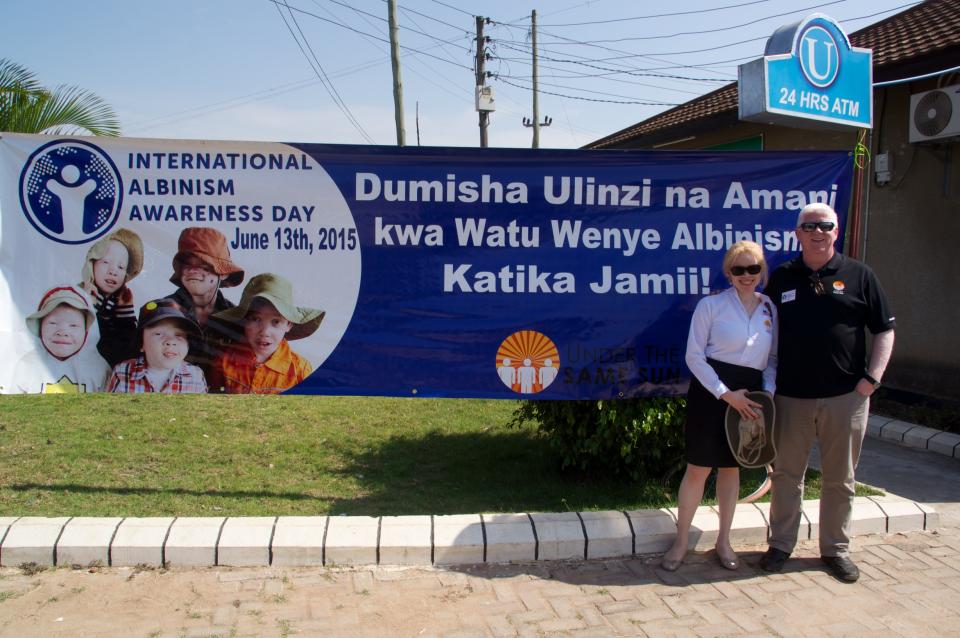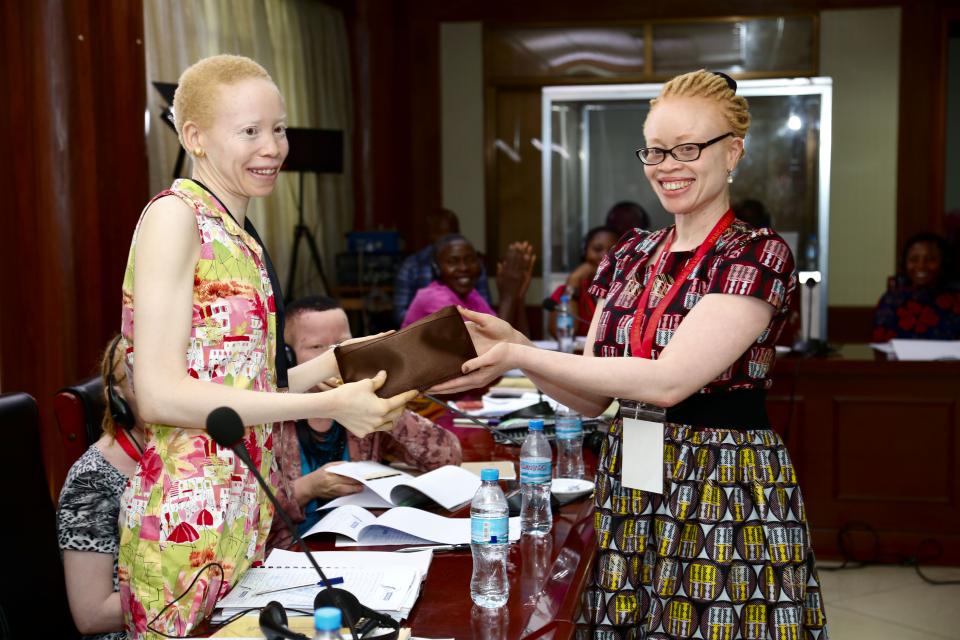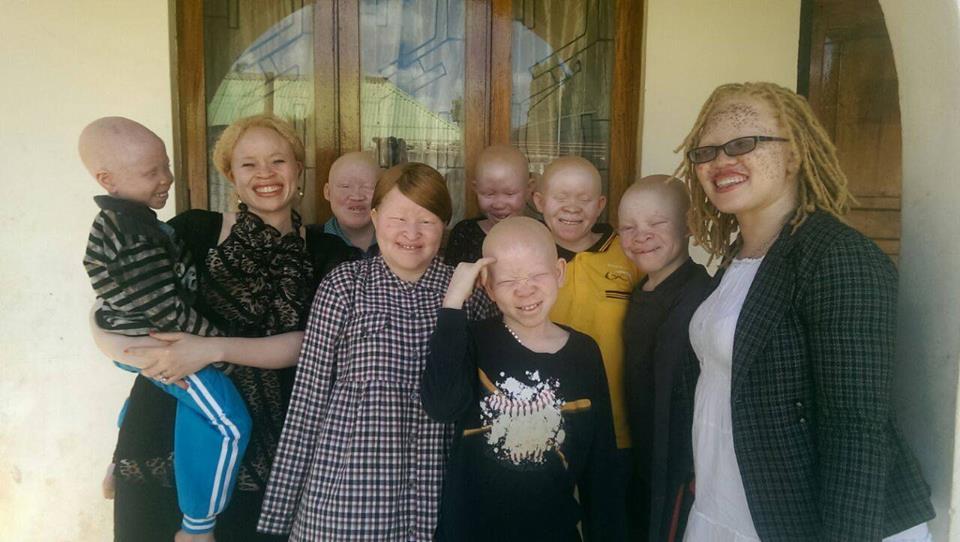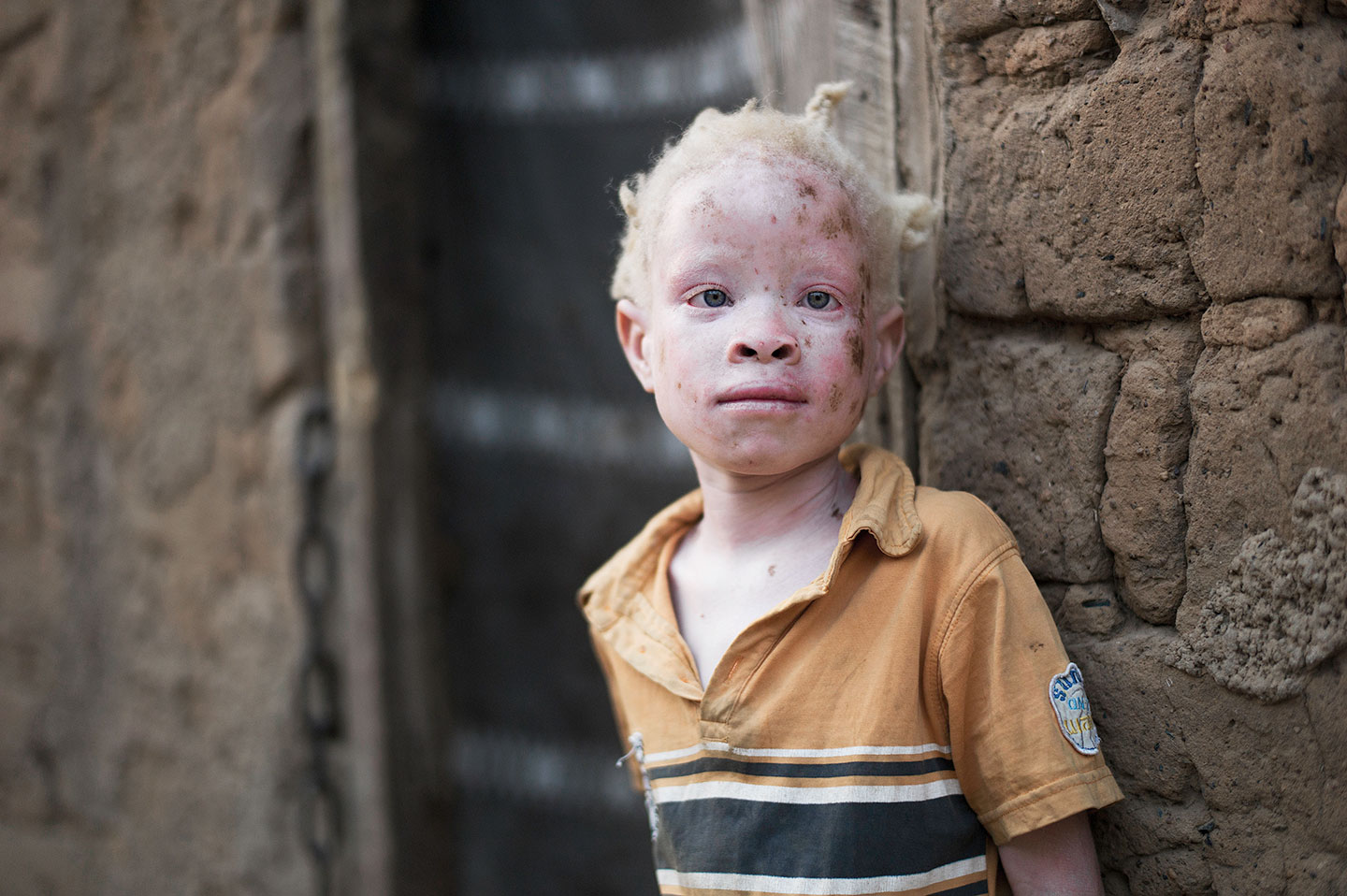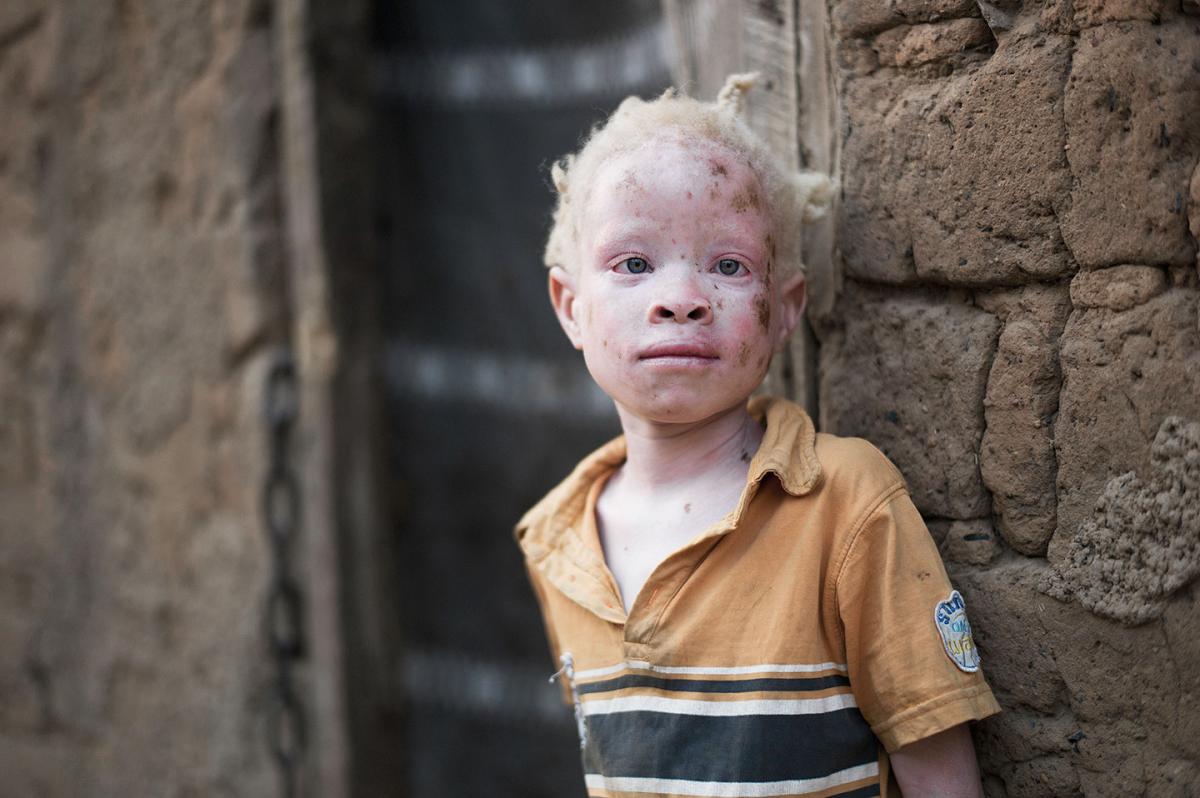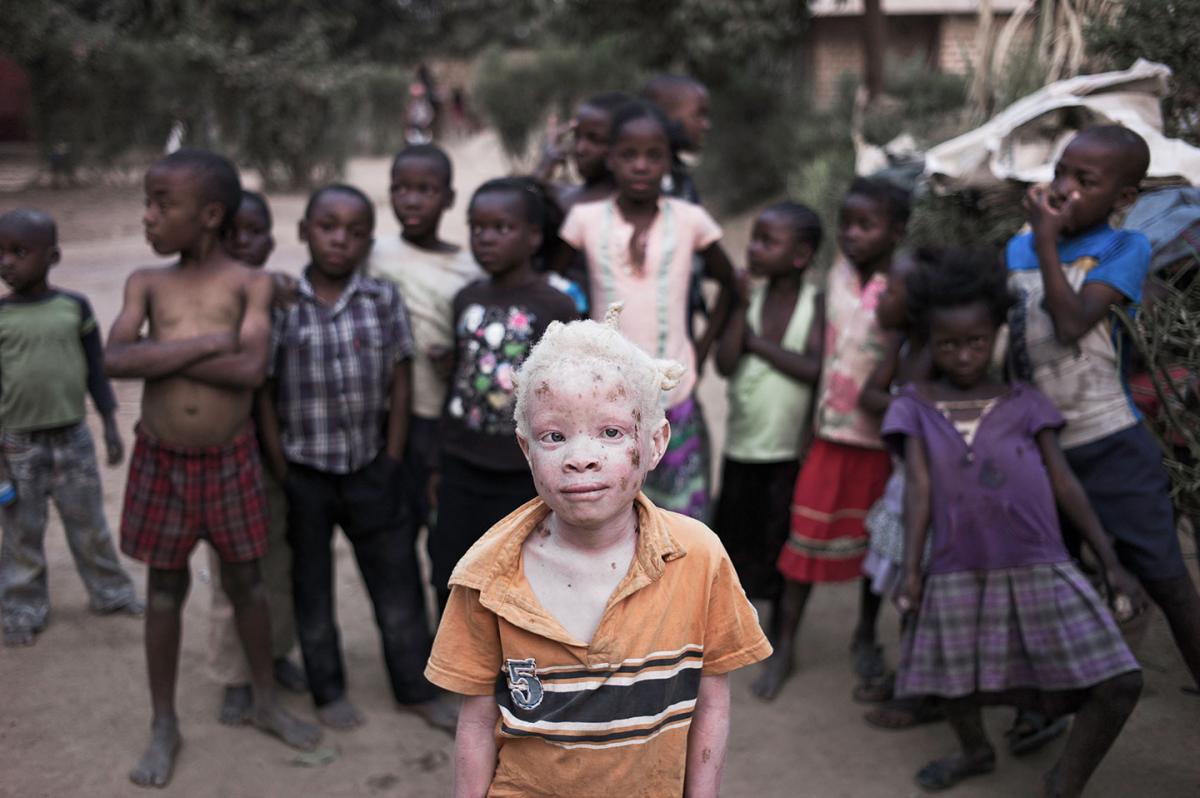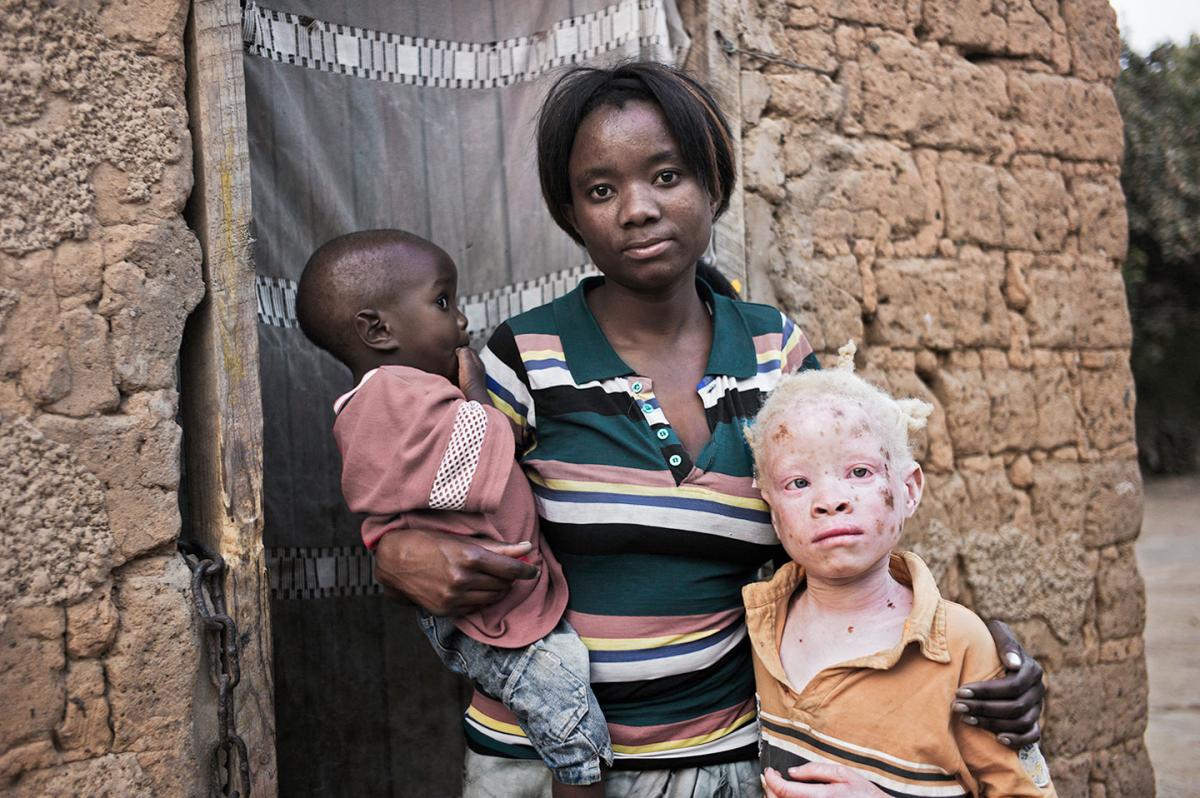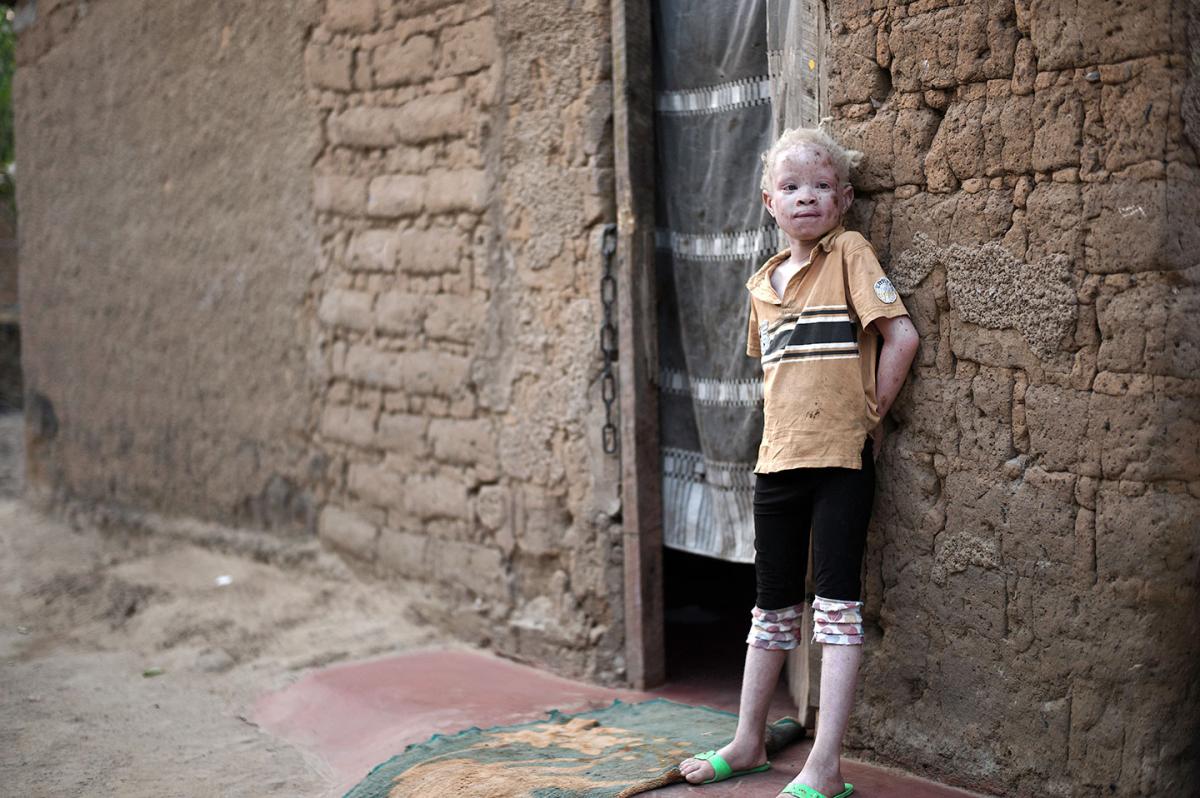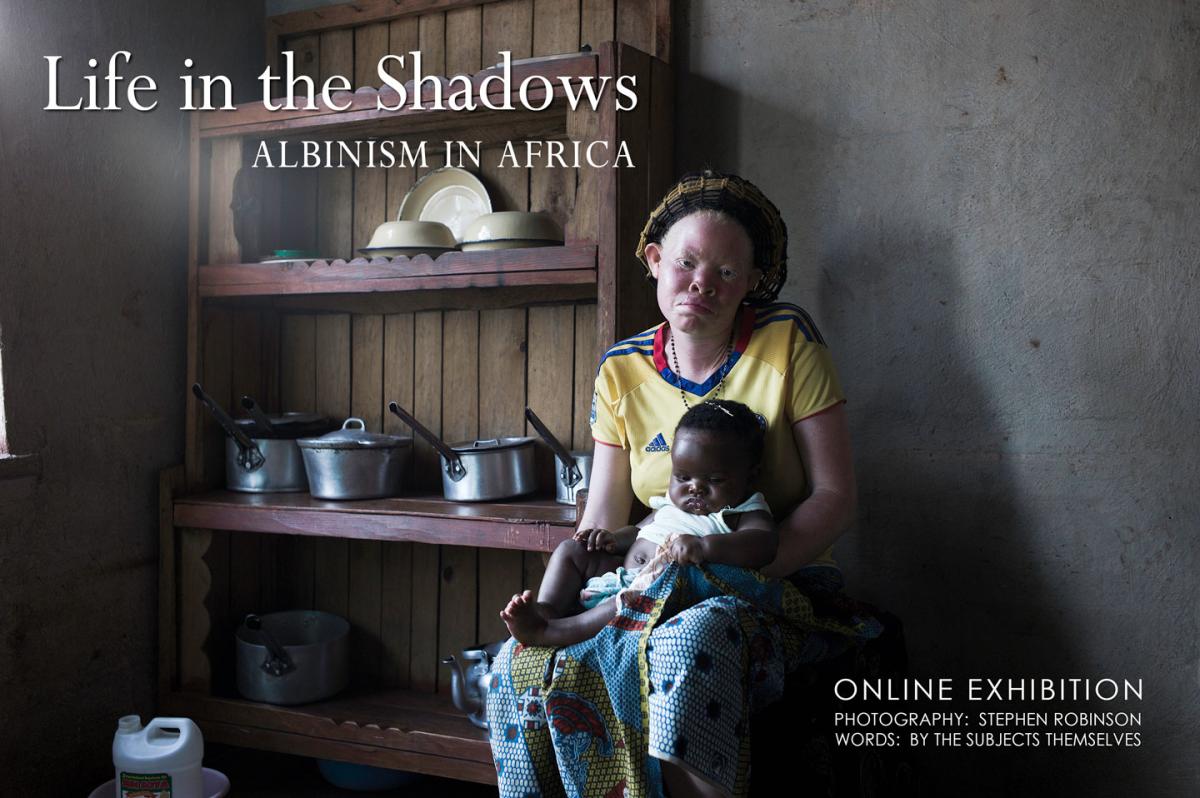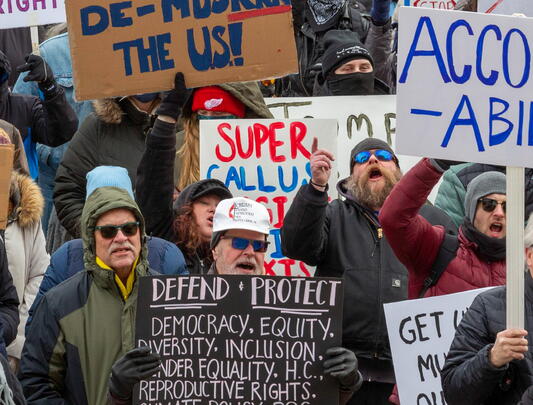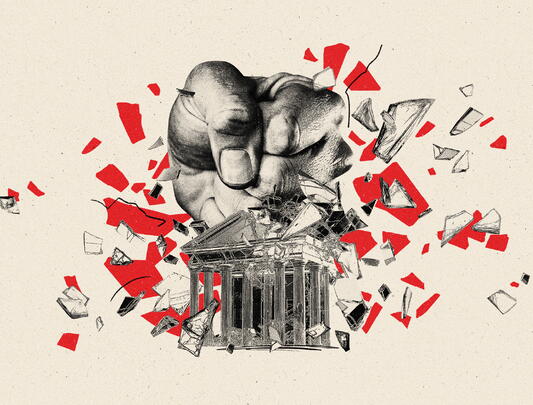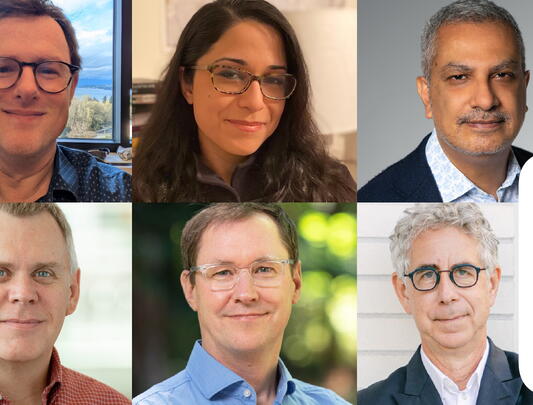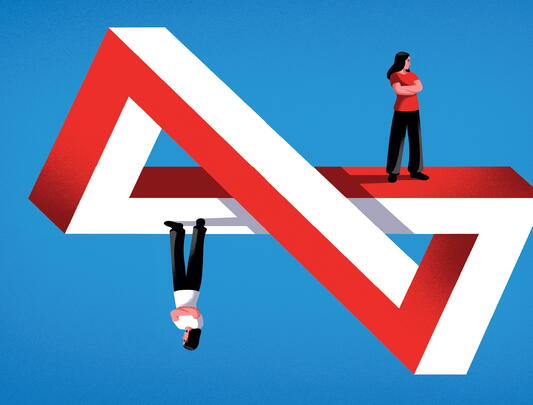Living in Fear
Ikponwosa Ero was born with pale skin and light brown hair, making her unique in her home of Ibadan, Nigeria. She became aware that she was different at age five, when kids at school began calling her "aafin." She went home and confided in her mother, who told her "don't listen to them, they are all just nasty."
"But they're picking on me because I'm different," replied Ero. "Why am I different?" Her mother explained that she was born with a genetic condition called albinism, and her matter-of-fact tone made it seem okay. A few days later another girl at school called her "aafin," which is the medical term but also used derogatively. Ero summoned her courage and repeated what her mother told her. The girl chuckled and asked her, "what's the difference? Who told you that's any better?"
Now 33 years old, Ero holds an official position with the United Nations Human Rights Council, advocating for the rights of people with albinism. She recalls that childhood moment as the first time she realized the devastating power of a social taboo. "I was utterly crushed," she recalls, "because I realized, 'if someone has a good comeback to my mother, I'm in trouble.'"
Through much of her childhood, Ero continued to endure teasing so hurtful that she often didn't want to leave home. For others with the condition, which is far more common in Africa than in North America, the consequences of the stigma can be even worse. In many African countries, people with albinism face abandonment as children, social ostracization, and even the threat of deadly attacks. A harmful body of myths that has circulated for hundreds of years casts people with the condition as ghosts and not human beings. Other frequently repeated beliefs are that sexual intercourse with a woman or a girl with the condition can cure HIV or AIDS, and that the sacrifice of a person with albinism can appease "the god of the mountain."
In rural areas, people who practice witchcraft believe that the body parts of people with albinism possess magical powers capable of bringing riches and power if used in potions. These witch doctors pay thousands of US dollars for body parts, and hundreds of attacks in which people with albinism have been maimed or killed by attackers with machetes have been reported since 2000 in at least 25 countries, including Malawi, Mozambique, Tanzania, and Burundi. Children are particularly vulnerable to these attacks, and survivors and families of the victim have been severely traumatized. These attacks and murders have been linked to trafficking in body parts.
Both were recipients of prostheses support from a collaborative venture in NY last year funded by UTSS, Global Medical Relief Fund and the UN fund for victims of torture.
According to a Red Cross report, the market for these body parts is driven by wealthy and powerful members of society. In some countries where witchcraft is practised, attacks on people with albinism have increased in the months before an election, leading to speculation that political representatives are behind the demand. Survivors of these attacks face significant difficulties in having their cases brought to justice for many reasons: the victim fears further attacks; secrecy surrounds witchcraft; witnesses are unwilling to testify because of the ostracization they face; the victim lacks financial resources and knowledge of legal rights; and the families or community members of the victim are frequently involved in the attack.
22 October 2015: Ikponwosa Ero on the Human Rights of Persons with Albinism, presented at the 70th session of the General Assembly of the United Nations.
Albinism is a condition characterized by the absence of melanin in the eyes, skin, and hair, and this frequently causes poor eyesight. Ero struggled in school because she couldn't see the blackboard. Her mother, Comfort Ero, helped her with her schoolwork, and also knew that her daughter needed to wear sunscreen. Using her connections to friends in Europe, she managed to keep a supply on hand. Many Africans with albinism have skin cancer lesions, and a common misperception is that cancer is part of the condition. One study by dermatologists found that in Tanzania, 98 per cent of people with albinism die of skin cancer before age 40. Thanks to her mother's vigilance, Ero remained cancer-free.
When she was 15, she immigrated to Canada with her mother and five siblings. They settled in Victoria. "It was easier because nobody pointed me out," she recalls. "From a distance I could move with a crowd, and that was a refreshing change." In 1999 she began studying at UBC. In her third year, she did an internship program and was sent to Trinidad, where she had to adjust to being completely on her own. "My family are very charming people, and I was always very aware of that. I realized I had to have my own charm, or at least accept myself. I did a lot of self-advocacy, and I was amazed that it was easy to do."
She graduated in 2004 with a bachelor's in political science, minoring in international relations. From UBC she went to the University of Alberta, where she completed a master's degree in political science with a specialization in non-governmental organizations. In 2008 she began law school at the University of Calgary, and after her first year she went to the International Criminal Court in The Hague, Netherlands, to complete a four-month internship in the Office of the Prosecutor. Her job was to organize and preliminarily assess boxes of evidence collected against perpetrators of election fraud in two African countries, in a way that was comprehensible to the prosecutor. "I learned a lot," she says. "It was about getting data where data is not easily accessible, knowing exactly what to ask to get the information you need. That skill has stayed with me because a lot of my work today is in the same region where access to data is not always easy."
She finished her law degree in December 2011, and had a break before she started articling in June. During this time, she worked for a Surrey-based organization called Under the Same Sun, which works in Africa to change attitudes about albinism through education, and provides support for people with the condition. She had previously done research work for the organization, and now she helped develop advocacy brochures and seminars on understanding albinism. A year later, Under the Same Sun was granted official status by the United Nations, allowing the organization privileges such as the ability to make a statement to the Human Rights Council. The founder and CEO of the organization, Peter Ash, who also has albinism, offered her a job doing the UN advocacy work. At this time more attacks on people with albinism were being reported, and Ero decided to leave her job at the department of justice. "For me it is a calling, a vocation," she says, of her advocacy work. "I can't help but do something."
She began travelling to Geneva and New York, meeting with delegates of member states and organizing events to raise awareness about the challenges and dangers faced by people with albinism in Africa. (The condition affects more people in certain areas of Africa than in North America. An overall estimate of prevalence ranges from 1 in 5,000 to 1 in 15,000 while in North America the rate is about 1 in 20,000.) "This issue had gone neglected for so long," she says. "Everyone knows somebody on the continent with albinism, but for some reason it had gone under the radar in all discussions on health. It had taken this level of atrocity to get the attention."
Gaining the support of ambassadors from different states, including Somalia, she was able to have several resolutions passed by the United Nations. The first, adopted in June 2013, condemned the attacks. A second, adopted in September 2013, called for more research on the issue. Passing these resolutions is important, she says, because they help to create a knowledge base. "We went from nobody at the UN knowing about the issue to everybody knowing," she says. "It's called mainstreaming. It's like gender issues now – everybody just inserts the issue into their report without anybody lobbying them."
In November 2014, the United Nations named June 13 as International Albinism Day, which was celebrated for the first time in 2015. In August 2015 Ero was appointed by the Human Rights Council to a position as Independent Expert on the enjoyment of human rights by persons with albinism. Her mandate is to work with the states in which the attacks have happened, with the goal of bringing them to an end. She also works to end the discrimination faced by people with albinism, and advocates for access to education and health.
Ero will write reports for the UN and visit states, meeting with representatives from non-governmental agencies, government ministries, and others close to the issue, to define strategies for each particular country. "I'm looking forward to actually dealing with witchcraft," she says. "It's going to be tricky because it's a broad area and it often happens in secret. It encompasses several aspects of religious freedom and cultural rights. I'm hoping, through broad consultation with people that know far more than I do about this, to find a way to delineate which practices violate people's basic human rights."
In December 2015, Ero attended the first-ever pan-African conference for people with albinism, held in Tanzania. Twenty-nine countries were represented, and medical officials from an NGO gave people skin cancer treatment on-site. This conference was a significant event, showing how much the issue had advanced. Gatherings of people with albinism have a powerful effect on changing perception, especially for those affected. Ero recalls another conference she attended in Washington DC at age 27. She was surrounded by more than 1,000 people that looked like her. "For the first time it was normal to look so pale, it was beautiful. I went to my room and I just cried. I cleaned off all my makeup, my mascara, and I washed my face and I just walked out. For the first time in my life, without makeup I just felt totally normal. For me, that was closure."
Learn more/make a donation: www.underthesamesun.com
Follow Ikponwosa Ero on Facebook, Twitter @unalbinism and Instagram @unalbinism
To draw attention to the important human rights issues associated with albinism, Zambia-based photographer Stephen Robinson has created a photo documentary, Life in the Shadows, to tell the unknown story of the everyday lives of those living with albinism in Africa. The sample story and slideshow below depicts the story of a young girl called Gift. The entire documentary can be viewed on Robinson’s website.
Gift
(age 7, not at school)
Gift’s mother, Sharon, says (translation):
‘Gift Chanda … was born as an albino. After her birth, the nurse said she’s an albino and I told her father that I have an albino baby. He said he cannot have an albino child and he told me that I am on my own and that’s how he left me and my baby.
I named her Gift because she was my gift from God and my husband.
I didn’t know how to take care of her – I was selling vegetables with her on my back not knowing that I am damaging her skin.
I am staying in a very small house with no plaster, so flies and mosquitoes are biting her. As a result she started having sores, rashes and ringworms etc. That’s how the problem of the skin started, as young as she is. As a single mother still I am not managing taking good care of her because I don’t work and because of her I’ve stopped selling vegetables.
…people say that for me to have an albino I am cursed including the baby. I am being laughed at and the child too. They’re calling her names that she looks like an animal because of the dotted skin. Some are calling her a woollen doll etc.
My family cannot eat with my albino girl. They cannot share anything like cups, spoons, bath tubs etc. they say her mouth looks like a pig, so they can’t share anything with her. She’s being neglected by my own family and her father. As she was coming out to urinate it was night time. People screamed at her thinking she was a ghost.’
©Stephen Robinson / WILDFOTOAfrica.com
